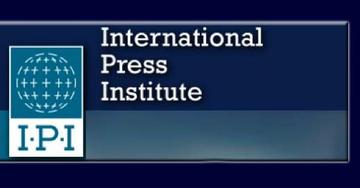
EU states are failing to reach relevant international standards on freedom of expression, as defamation remains a criminal act in 23 out of all 28 members of the bloc, the International Press Institute (IPI) said on July 17th
"Laws in 20 EU member states contemplate imprisonment as a punishment for defamation or insult, contradicting European Court of Human Rights rulings that imprisonment is, as a general rule, never an appropriate punishment for defamation," the Vienna-based organisation noted upon the release of a new report on defamation law in the EU.
In 15 of those countries, among them Greece and Slovenia, those found guilty on such charges could get a jail term of up to two years, with the shortest term of up to one month being envisioned in Latvia. The longest prison sentences for defamation are stipulated under laws in Austria and Germany (up to five years in each), Italy (up to six years) and Slovakia (up to eight years).
Defamation is also criminalised in Bulgaria, Croatia and France, but the envisioned punishment there is a criminal fine.
Cyprus, Estonia, Ireland, Romania and the UK are the only EU member states that have repealed criminal defamation as an offence against private individuals.
The IPI survey also covered all official EU candidates, minus Albania, which had not yet joined that club at the time of the research. It showed a mixed picture within that group too, with defamation treated as a criminal offence in Serbia, Iceland and Turkey, but punishable with imprisonment in the latter two only, with the envisioned jail terms set at up to 24 months and up to 26 months, respectively. In the remaining two EU candidates, Macedonia and Montenegro, defamation and insult have been decriminalised.
"The results of our research should serve as a wake-up call to all concerned with press freedom in the EU," an IPI statement , announcing the report, quoted the organisation's executive director, Alison Bethel McKenzie, as saying. "The existence and use of such outdated defamation laws, combined with a haphazard application of international standards on free expression by national courts, no doubt opens the door to a chilling effect on EU media. And this is something that all EU citizens, not just journalists, should be concerned about. When journalists are not able to carry out investigations or freely criticise those in power, the people's right to know is threatened."
This publication has been produced with the assistance of the European Union. The contents of this publication are the sole responsibility of Osservatorio Balcani e Caucaso and its partners and can in no way be taken to reflect the views of the European Union. The project's page: Safety Net for European Journalists.A Transnational Support Network for Media Freedom in Italy and South-east Europe.

 IPI says EU criminal defamation laws outdated
IPI says EU criminal defamation laws outdated




 All the contents on the Osservatorio Balcani e Caucaso website are distributed with a
All the contents on the Osservatorio Balcani e Caucaso website are distributed with a 